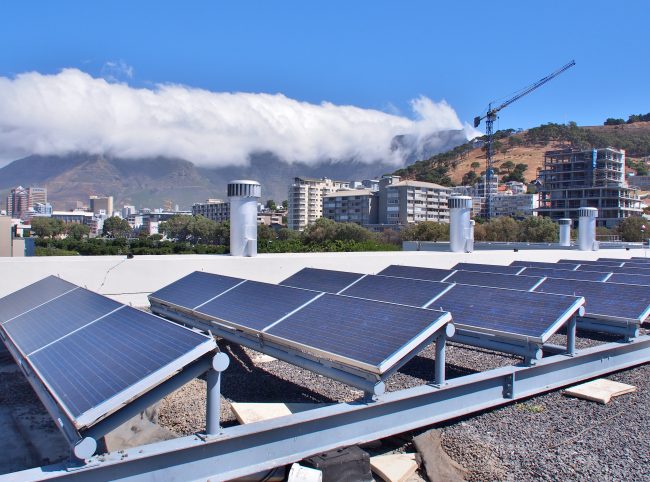Companies engage with environmental concerns for a variety of reasons. Growing awareness among the public of the risks and damage of climate change is
Companies engage with environmental concerns for a variety of reasons. Growing awareness among the public of the risks and damage of climate change is making eco-friendly choices and green policy a meaningful way to boost corporate reputations and likeability. But it’s not just a matter of conscience, or even marketing, that’s pushing more and more businesses to make smart environmental changes in their operations. Increasingly, it’s a financial concern.
Eco-friendly approaches to business, from the supply chain to day to day operations, are the way of the future, and businesses that adapt quickly are going to outlive, out-earn, and out-perform their fossil-fuel dependent, pollution-heavy competitors.
While the grow/build/manufacture and buy local movements are one approach to reducing the environmental footprint of products, many consumers aren’t willing to adjust their lifestyle to only include the limited variety of locally available products. Logistics and transport as a sector is a necessary part of doing business for many companies, and it’s not going away anytime soon. But it is getting greener. Evangelos Marinakis’s Capital Maritime & Trading Corp. demonstrates smart future proofing of the transport sector by progressively and proactively upgrading fleets to be environmentally friendly. Integrating electric and renewable energy sources to shipping and transport cuts back on fossil fuel use, reduces damage to the environment, and positions forward thinking companies to avoid the increasing costs of legacy fuel and to benefit from decreasing costs of green energy.
In manufacturing, companies are benefitting from moving to more energy-efficient equipment, swapping out dirty energy for clean sources such as solar, which are getting cheaper all the time, and have the potential to pay for themselves and start producing “free” energy down the line.
In addition, 3D printing and better analytical and strategic approaches to demand and supply are helping companies stop overproducing and creating unnecessary waste by right-sizing production to demand. Finally, a growing awareness of whole-lifecycle cost is helping companies understand the wider impact of their manufactured products, make smarter, cleaner choices in their materials selection, produce less waste product, and find creative, synergistic reuse and recycling options for waste products. Companies like Unilever are leading by example with integrated policies that consider true, integrated costs from the beginning (sourcing) to end (disposal) of products and work to mitigate and remedy damaging outcomes.

The construction sector is responding to the wasteful and damaging practices of traditional development in a variety of creative ways. On the materials side, renewable, low-carbon-footprint materials like wood are increasing in popularity, while creative reuse and modular design-build is gaining traction. Renewable energy sources in industrial, commercial, public, and residential construction are gaining acceptance, and some developments are even producing excess energy from renewable sources and selling it back to the grid. The rise and proliferation of multiple industry standards for better environmental practice is well-documented and is getting traction worldwide.
Services companies are taking advantage of current and emerging digital collaboration technologies to spend less on transport, cut down on commuting, and reduce space demands. The switch to renewable energy sources, more efficient lighting, environmental controls and fixtures is taking place in many companies as a smart way to save money while improving their reputation. Recycling policies are coming of age, graduating to more detailed, responsible practices, and, in some cases, moving to full zero waste policies that invite employee participation.
In the retail sector, companies are switching to energy efficient fixtures and materials to conserve energy, moving to clean energy sources, right-sizing for customer base, reducing carbon footprint across product lifecycles, as well as reducing oversized showroom or retail floor space, and balancing efficient automation with human-centric experiences to serve customers better. Emphasis on recycling, reduced packaging, and reduced waste is growing, and has the dual benefits of being popular with the public while cutting costs. Less packaging, less reliance on plastics, and more environmentally friendly, renewable packaging solutions are being experimented with and implemented in multiple locations. Businesses are also benefiting from using eco-friendly cleaning products which are better for staff as well as the environment. You can either purchase these yourself online, or ensure you have a cleaning company that uses them such as Ideal Cleaning.
Your business can position itself well for the future by looking for opportunities to reduce consumption, employ renewable energy sources, and implement environmentally friendly, brand-boosting measures. Start by making a plan for areas that need improvement or adjustment. It can be expensive to tackle changes all at once, so come up with a schedule and invest in changes over time.
Share your efforts with staff and the public so they can participate, support, and champion your investment in environmental best practices. Keep an eye out for emerging technologies and solutions, and, depending on your sector, consider investing in and searching out new, better solutions to existing practices.




COMMENTS